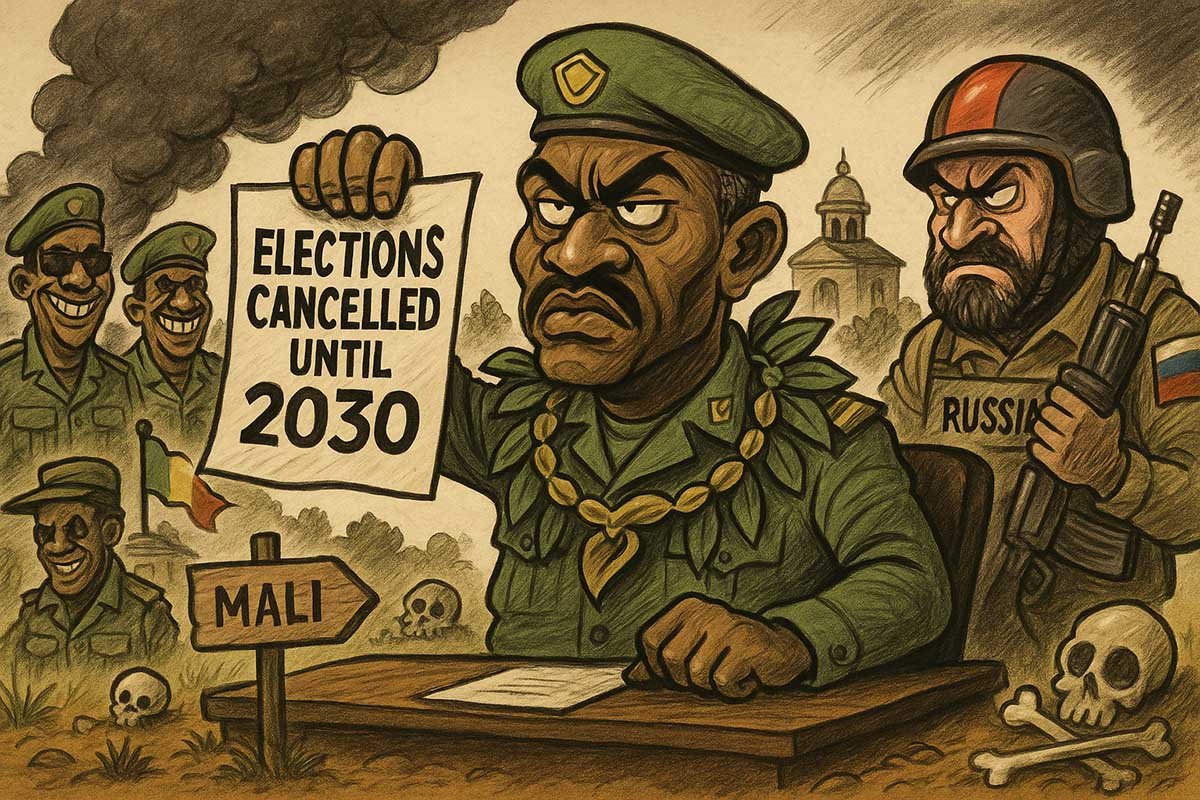This week, Mali’s military junta perfected the art of indefinite rule, as the Council of Ministers approved an extension that will keep Colonel Assimi Goïta in power until 2030—without even the pretense of a national election. State media and regime loyalists wasted no time selling the maneuver as a “stabilizing transition,” while international outlets bluntly called it what it is: a self-coup, with Goïta himself poised to rule for a decade.
The new bill, adopted by Mali’s government, formalizes a five-year extension on top of previous delays, discarding any remaining fiction of a democratic timeline. Mali’s military tightened its grip on power, even as jihadist attacks intensify and the countryside slips further out of government control.
What’s the junta’s answer to spreading insecurity? More Moscow, less Bamako. In the same week the extension was rubber-stamped, Mali announced new gold export deals with Russia, deepening economic and security ties. The so-called “Russian Africa Corps”—the rebranded Wagner Group mercenaries—continue to lose equipment to ambushes even as they trumpet their role as regime lifeline.
For Malians, the reality is bleak: jihadists grow stronger, foreign mercenaries fight running battles in the bush, and Bamako’s democracy has become a historical footnote. Analysts warn that Goïta’s power grab is a template for other coup-born rulers across the Sahel—a message to would-be authoritarians that all it takes is a pen, a pliant parliament, and a Russian adviser to put democracy on ice.
In a region once hailed for democratic hope, the strongman era is back—longer, darker, and with a Russian accent.
